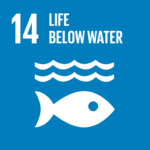Amidst the devastation caused by rising ocean temperatures, scientists have discovered a glimmer of hope: baby corals, bred through a groundbreaking IVF-like technique, are defying the odds and surviving in environments where older colonies are perishing.
Over the past five years, scientists from Secore International, a reef conservation organization, have been pioneering a new way to save the world’s coral reefs. Using a process akin to human IVF, they collect coral eggs and sperm—known as spawn—from healthy reefs and fertilize them in carefully controlled lab environments. The goal is simple but ambitious: breed new coral colonies that are genetically diverse and more adaptable to the harsh realities of climate change.
RELEVANT SUSTAINABLE GOALS


Once the young corals reach maturity, they are carefully transplanted back onto damaged reefs across the Caribbean. Here, they attach, grow, and begin to restore the fragile ecosystems that have been devastated by bleaching events, disease outbreaks, and other environmental stressors.
A Surprising Success Amid Record Heat
The results of this experiment have been astonishing. In the summer of 2023, when ocean temperatures hit record highs, the reefs around the Caribbean experienced yet another mass coral bleaching event—the fourth in recent memory. Many of the older coral colonies, already weakened by past events, succumbed to the extreme heat, with only about a quarter managing to survive.
Yet, in a striking contrast, 90% of the young, IVF-bred corals remained vibrant and healthy. This resilience stunned researchers and provided a beacon of hope for reef restoration efforts around the globe.
“We were not expecting such high survival rates,” said Dr. Margaret Miller, research director and lead author of a new study conducted on Sombrero Reef in the Dominican Republic. “These young corals are showing remarkable tolerance to heat stress. It’s a promising indication that our efforts to increase their genetic diversity are paying off.”
Why Are These Corals Thriving?
While the exact reasons for the young corals’ resilience are still being explored, one theory points to their ability to acquire more heat-tolerant algae. Corals have a symbiotic relationship with algae, which provide them with food and their vibrant colors. When waters get too warm, the algae are expelled, leading to coral bleaching. The genetically diverse IVF corals may be more flexible in maintaining a relationship with algae species that can withstand higher temperatures.
However, Dr. Miller cautions that the young corals’ success may be temporary. “As these corals age, their resilience to heat may diminish,” she explains. “We’re hopeful, but we have to continue monitoring them to understand the long-term viability of this approach.”
Why Should We Care About Coral Reefs?
Coral reefs are far more than just beautiful underwater landscapes; they are vital to life on Earth. Reefs support an extraordinary diversity of marine life, protect coastlines from erosion, and serve as critical sources of food and income for over half a billion people worldwide. Economies, particularly in tropical regions, depend on healthy reefs for tourism and fishing.
But these ecosystems are in crisis. Rising ocean temperatures, largely driven by climate change, have led to mass coral bleaching events that can take years to recover from—if recovery is even possible. When the reefs die, the marine life that depends on them disappears, coastal areas become more vulnerable to storm surges, and local communities suffer both economically and environmentally.
In 2023, ocean temperatures reached their highest levels on record, triggering widespread coral bleaching in some of the world’s most iconic reef systems. The fourth mass bleaching event in recent years has pushed these delicate ecosystems to the brink. Scientists warn that without intervention, we could lose a significant portion of the world’s reefs within our lifetime.
The Role of Restoration—and the Larger Climate Fight
The work of Secore International is crucial in the fight to restore coral populations, but it is not enough on its own. Coral IVF can help rebuild damaged reefs, but as Dr. Miller emphasizes, “We have to address the root causes of the climate crisis to truly protect these ecosystems for the long term.”
Reefs can recover from bleaching if ocean temperatures return to normal, but recovery is slow, and time is running out. Without aggressive action to curb greenhouse gas emissions and halt global warming, restoration efforts, no matter how innovative, will only offer a temporary reprieve.
Our future is intertwined with that of the coral reefs. The benefits they provide—whether through biodiversity, coastal protection, or economic livelihoods—are invaluable. As the world grapples with the escalating consequences of climate change, efforts like Secore International’s IVF project remind us that there is still hope, but only if we act swiftly and decisively.
To learn more about how you can support coral conservation and contribute to the fight against climate change, visit Secore International and discover how even small actions can have a big impact. The future of our oceans depends on what we do next.
Lead image courtesy of D.A. Varela/Miami Herald/TNS (A University of Miami Rosenstiel School scientist collects healthy coral from the Paradise Reef nursery before being planted on an adjacent reef during a Rescue A Reef coral restoration dive out of Diver’s Paradise dive shop located at Crandon Marina in Key Biscayne, Florida, on Friday, Aug. 4, 2023. Rosenstiel School scientists are working to establish a new restoration research site off Miami to identify and better understand the heat tolerance of certain coral species and genotypes during bleaching events like this.)
You may also be interested in :
U.S and Indonesia Strike $35 Million Deal To Save Coral Reefs In Biodiversity Hotspot



